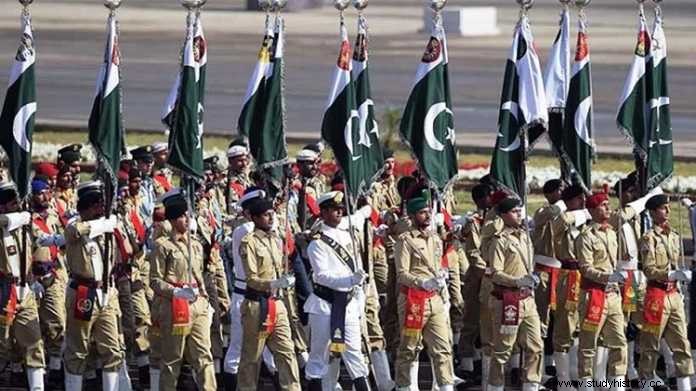
For almost a decade after Partition, it was easy to move between India and Pakistan. A large number of people used to move from here to there with the help of the rail-line built during the British period. E. In 1951, Pakistan prepared a new citizenship law for itself, after which in June 1952, the passport was made mandatory to travel from Pakistan to India. Even till then, an Indo-Pakistani passport was valid to travel between the two countries and international passport was made necessary after 1965.
Only then the visa was applied. After partition, books of each other's authors were sold in both the countries. Urdu poets of both the countries used to go to each other country without any restriction and read their poetry. The trade was also going on without any hindrance and without any hindrance. Politicians and administrative officials on both sides knew each other very well. Newspaper editors and professors also used to meet each other continuously, but gradually it all stopped and both the countries were completely separated from each other.
There were many Muslims who lived in India but considered themselves to be citizens of Pakistan. Many Muslims returned to India from Pakistan and Bangladesh after immigrating to Pakistan. Pakistan also left no stone unturned to take advantage of this generosity of India. Once Pakistan declared Muhammad Ismail, a resident of Uttar Pradesh, India, as the High Commissioner of Pakistan in India, even though he was not a Pakistani citizen.
When this matter came up in the newspapers, then Pakistan had to take its step back. Through this appointment, Pakistan wanted to show that all Muslims living in India are actually Pakistanis. Many Muslim leaders who migrated to Pakistan continued to believe that they would continue to be the owners of their properties in India even though they were in Pakistan.
Chaudhry Khaliq Uzzman used to be the Leader of the Opposition in the Central Legislative Assembly of India before the formation of Pakistan. He went to Pakistan in AD 1947 and started living in Karachi. He became the president of the Pakistan Muslim League, yet continued to come to India to look after his wealth. It was this person who proposed Pakistan in the Lahore session of the Muslim League in AD 1940. He continued to consider himself a citizen of Uttar Pradesh.
Joginder Nath Mandal, who had become a minister in Jawaharlal Nehru's interim cabinet on behalf of the Muslim League, was a Bengali politician from a community called Dalit. In 1947, he went to Pakistan at the invitation of his old friend Muhammad Ali Jinnah because Jinnah believed that Indian politics was dominated by upper caste people. Jinnah made him the Law Minister of Pakistan.
E. After the Indo-Pakistani War of 1948, Hindu-Muslim riots in East-Pakistan and after Jinnah's death, Mandal was isolated and the files which should have been known to the Mandal as cabinet minister were also confidential. Said it was stopped. When Pakistan's first Prime Minister Liaquat Ali Khan supported the proposal to make Islam the official religion of the state, Mandal realized that his days in Pakistan were now numbered.
After the verbal and physical attacks on him in October 1950, he fled to Calcutta to seek refuge in India. In his resignation to the Government of Pakistan, he condemned Jinnah's successors for not caring about the rights and future of minorities in Pakistan.
